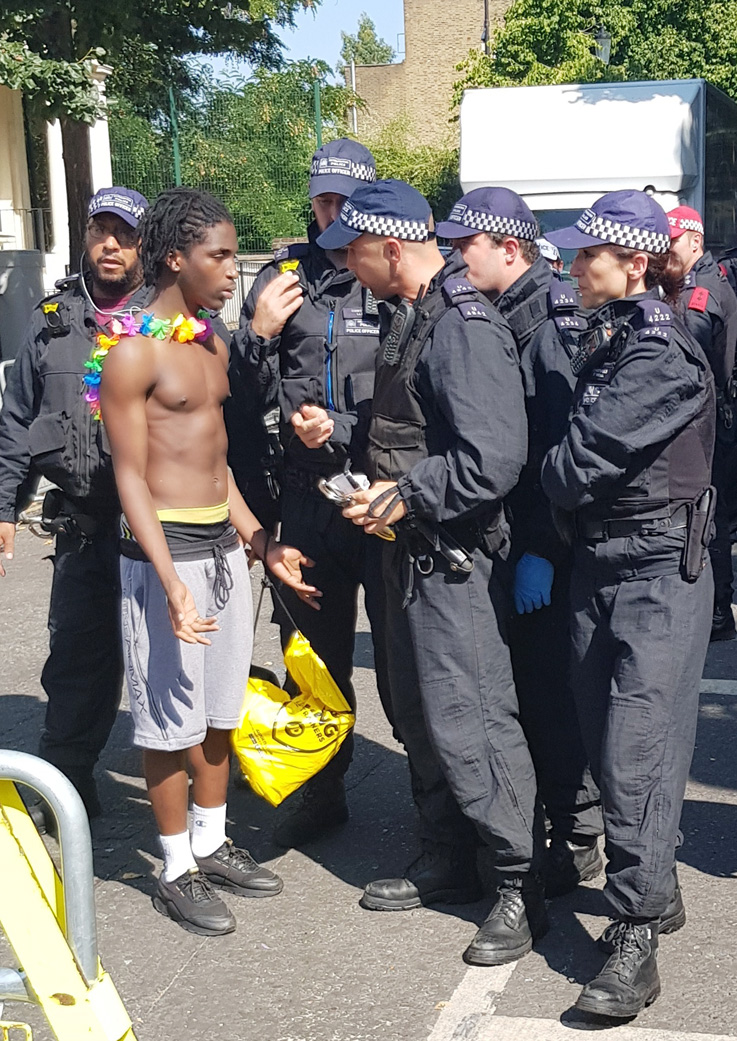THE TORY government yesterday put forward proposals for even more sweeping police powers. They include taking off all restrictions on Stop and Search.
Under the Beating Crime Plan, more of those released from jail would have their location monitored with electronic tags 24 hours a day after leaving prison.
The document also says Project Adder – which targets drugs gangs, offers help to addicts and increases the use of drugs testing when arrests are made – will be expanded from five areas of England to 13.
The new areas covered will be Newcastle, Bristol, London’s Hackney and Tower Hamlets, Wakefield, Liverpool, Knowsley and Wirral.
The Tories are also removing rules which made it harder for officers to use their Section 60 Stop and Search powers.
The powers would now allow officers to search people without reasonable suspicion in places where ‘serious violence may occur’.
Campaign group Liberty said the permanent relaxation of search powers would ‘compound discrimination in Britain and divide communities’.
Emmanuelle Andrews, policy and campaigns officer at Liberty, said: ‘Many communities, particularly communities of colour, experience overbearing and oppressive policing, and the package the government has put forward will only worsen this. It will subject more young people to further coercion, punishment and control.’
Tory PM Boris Johnson also said he wanted to see hi-vis ‘chain gangs’ as punishment for anti-social behaviour.
‘If you are guilty of anti-social behaviour and you are sentenced to unpaid work, as many people are, I don’t see any reason why you shouldn’t be out there in one of those fluorescent-jacketed chain gangs visibly paying your debt to society,’ he said.
The measures include:
- Proposals for league tables ranking how quickly police forces answer 101 and 999 calls;
- More officers to deal with children truanting from school;
- Permanently relaxing conditions on the use of Section 60 Stop and Search powers for police to tackle knife crime;
- Expanding the use of electronic monitoring for those released from prison;
- Trialling the use of alcohol tags – which detect alcohol in the sweat of offenders guilty of drink-fuelled crime – on prison leavers in Wales;
• Making unpaid work ‘more visible’ by getting offenders to clean streets and open spaces.
